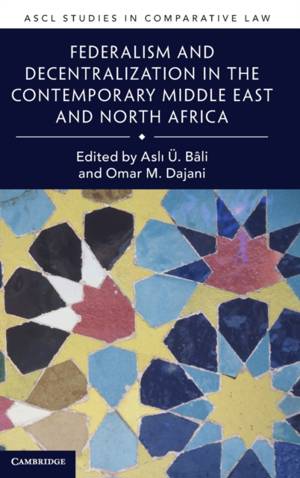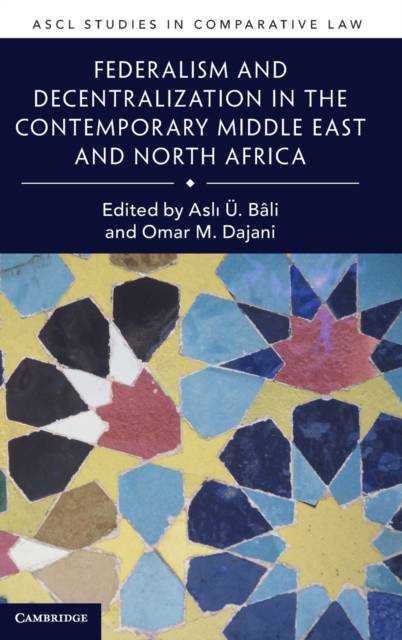
- Afhalen na 1 uur in een winkel met voorraad
- Gratis thuislevering in België vanaf € 30
- Ruim aanbod met 7 miljoen producten
- Afhalen na 1 uur in een winkel met voorraad
- Gratis thuislevering in België vanaf € 30
- Ruim aanbod met 7 miljoen producten
Zoeken
Federalism and Decentralization in the Contemporary Middle East and North Africa
€ 201,95
+ 403 punten
Omschrijving
This volume, the first of its kind in the English language, examines the law and politics of federalism and decentralization in the Middle East and North Africa. Comprised of eleven case studies examining the experience across the region, together with essays by leading scholars providing comparative and theoretical perspectives and a synthetic conclusion by the co-editors, the volume offers a textured portrait of the dilemmas of decentralization during a period of sweeping transition in the region. The collection addresses an important gap in the comparative decentralization literature, which has largely neglected the MENA region. Both retrospective and forward-looking in orientation, the book is a valuable resource not only for scholars of comparative politics, constitutional design, and Middle East studies, but also for policy makers evaluating the feasibility and efficacy of decentralization as a vehicle for improving governance and responding to identity conflict in any part of the world.
Specificaties
Betrokkenen
- Uitgeverij:
Inhoud
- Aantal bladzijden:
- 376
- Taal:
- Engels
- Reeks:
Eigenschappen
- Productcode (EAN):
- 9781108831239
- Verschijningsdatum:
- 5/01/2023
- Uitvoering:
- Hardcover
- Formaat:
- Genaaid
- Afmetingen:
- 152 mm x 229 mm
- Gewicht:
- 757 g

Alleen bij Standaard Boekhandel
+ 403 punten op je klantenkaart van Standaard Boekhandel
Beoordelingen
We publiceren alleen reviews die voldoen aan de voorwaarden voor reviews. Bekijk onze voorwaarden voor reviews.










